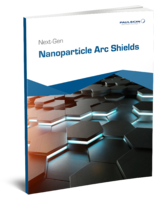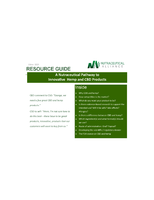World's Largest Denitrification Plant Utilizes Severn Trent Services Technology, Continues to Reduce Nutrient Pollution in Tampa Bay Estuary After Nearly 30 Years in Operation
July report from the National Oceanic & Atmospheric Administration cited the estuary as a rare success in reducing nutrient pollution.
FORT WASHINGTON, Pa. - September 27, 2007 - A Severn Trent Services denitrification system is reducing nitrate-nitrogen (NO3-N) and suspended solids to meet stringent government standards at the world's largest denitrification plant located in Tampa, Fla. According to the plant's manager, Phillip Clark, the Howard Curren Advanced Wastewater Treatment Plant can claim much of the credit for the reduced nutrient pollution in the Tampa Bay estuary, which was praised in a July 2007 report by the National Oceanic & Atmospheric Administration (NOAA).
Nutrients such as phosphorous and nitrogen trigger algae blooms and reduce the amount of oxygen in waterways. The NOAA report, "Effects of Nutrient Enrichment in the Nation's Estuaries: A Decade of Change, National Estuarine Eutrophication Assessment Update," said the increased nutrient pollution in U.S. estuaries is linked to human activities upstream from the waterways. However, while nutrient pollution is getting worse in many U.S. estuaries, the NOAA report cited the Tampa Bay estuary as an example of how aggressive nutrient management can reverse the trend of increased nutrient pollution.
The Howard Curren plant utilizes a TETRA® Denite® denitrification system first installed in 1978 and expanded in 1992. The fixed-film biological denitrification process removes NO3-N and suspended solids (SS) in a single treatment step. The system can also be integrated with other plant treatment processes to provide superior total nitrogen (TN) and phosphorous removal. Denite is used as the final treatment step in a total nitrogen removal process to help a facility meet stringent TN discharge limits of less than 3 mg/l.
The improvement in filtered effluent quality of the large flow from this plant has been a documented factor in the revitalization of Tampa Bay over the last few decades. Sea grasses and sport fish have returned to once barren areas of the waterway.
Ten years of effluent data (1997-2006) reveal the following results: average flow of 55.43 million gallons/day; biological oxygen demand of 2.52 milligrams/liter (mg/L); total nitrogen of 2.46 mg/L; and total suspended solids of 0.93 mg/L.
About Severn Trent Services
Severn Trent Services (www.severntrentservices.com), with global headquarters in Fort Washington, Pa., is a leading supplier of water and wastewater treatment solutions. The company's broad range of products and services is concentrated around disinfection, instrumentation and filtration technologies, contract operating services and state-of-the-art residential metering products and services. Our analytical services group is the United Kingdom's leading environmental testing organization, and our international management services business provides support in all aspects of water and wastewater utility operational development and business transformation. Severn Trent Services is a member of the Severn Trent Plc (London: SVT.L) group of companies. Severn Trent is a FTSE 100 company.




